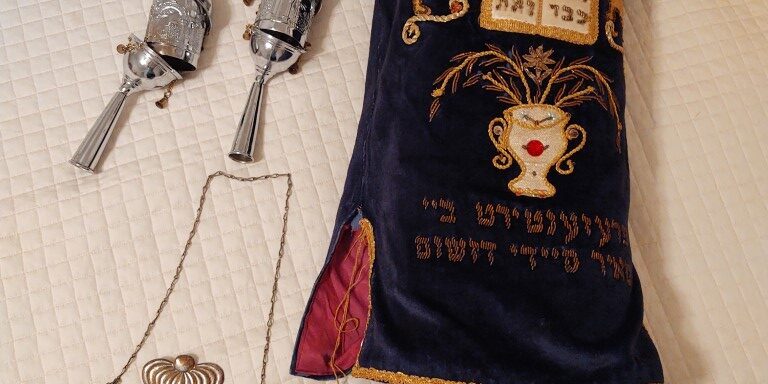Torah: Vayikra (Leviticus 1:1-5:26) Haftarah: (Isaiah 43:21-44:23)
The Torah has descriptions of five different kinds of sacrifices to be offered in the sanctuary: the olah, or burnt offering; the minchah, or meal offering, the zevach shelamim, or sacrifice of well-being; the chattat, or sin offering; the asham, or guilt offering.
Korbanot: Sacrifices in biblical times were considered an expression of faith to G-d. Today, The Beit Midrash/the Holy Temple in Jerusalem does not exist, and Jews do not have sacrifices. People often ask if the Holy Temple would be rebuilt, would sacrifices be continued. I pray for the day of seeing the Holy Temple in Jerusalem to be built, however the Muslim’s mosque stands in the area. As for the answer of sacrifices, there are many opinions.
This Torah portion has an important mitzvah of the duty of giving testimony. The Torah states: “If anyone sins, if he hears a curse, he becomes a witness, if he has seen or known, if he does not testify, then he must bear his guilt.” (Leviticus 5:1). Since justice is the foundation of society, anyone who deliberately impedes justice is thereby guilty of perpetrating an act of injustice. A person who could give testimony that would help the court of justice come to a decision, but fails to do so, has committed a sin. As a rule, courts of justice under Jewish law require the testimony of two witnesses to establish a fact.
The shared theme and connection of the Torah portion and the Haftarah is the authentic worship of G-d by Israel in early biblical times at the sanctuary and their falling away from G-d in the time of Isaiah, a strong contrast to earlier practice. Keep in mind the values that Israel is G-d’s chosen people, G-d wants more than rituals; G-d wants our hearts and minds, and that any belief in idols is vanity.
Today, one sees how far our society has strayed from civilization. The lack of following laws made by the countries that Jewish people dwell in. The senseless violence, the lack of respect for others, and the many issues stemming from the Covid shutdowns appears as a strong separation from the decades previously. How does one get back on the righteous path? Each of us has the freedom to choose a direction to do mitzvot/good deeds by helping others, listening to others, volunteering, and keeping and remembering the Sabbath (that is why Jews kindle two candles). By even slightly following the Shabbat an individual’s health is improved by the separation from the mundane to the spiritual. G-d made the Sabbath for all of us. We are truly blessed.
Shabbat Shalom,
Rabbi Helene Ainbinder







